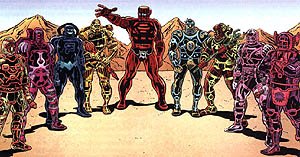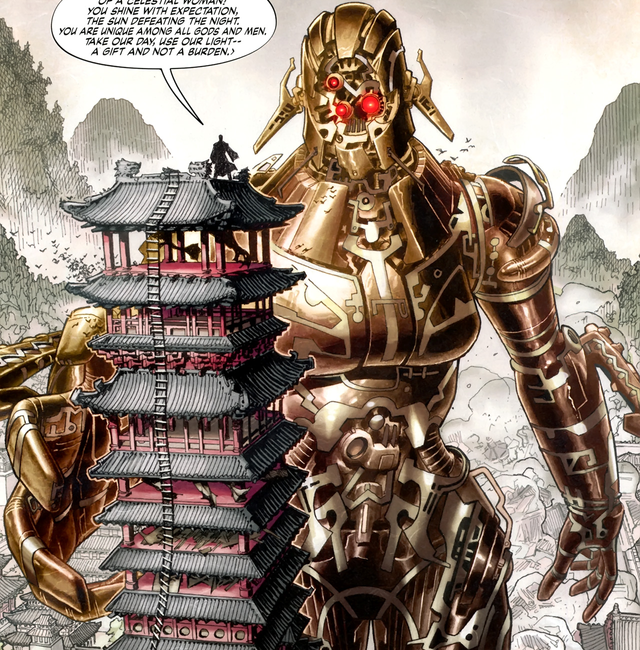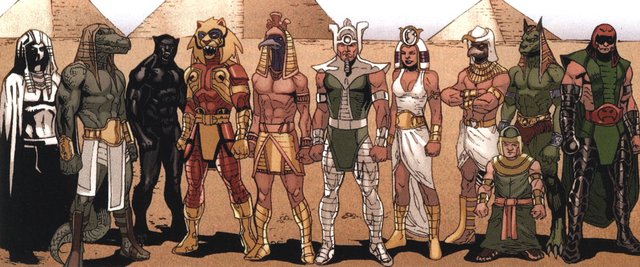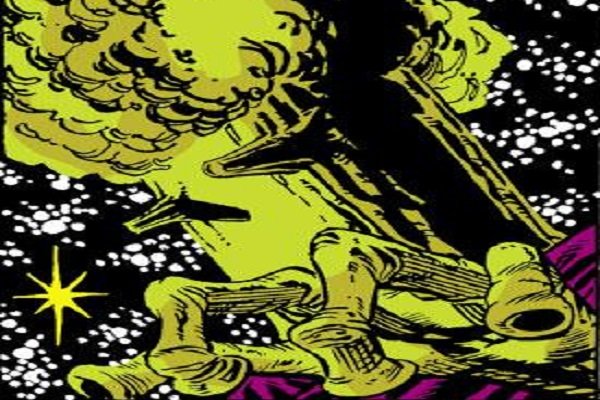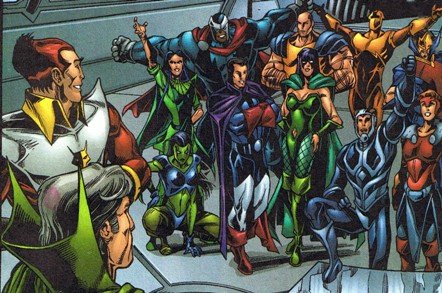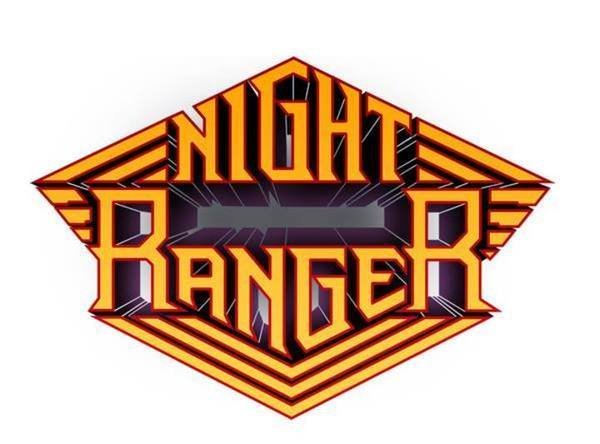The Accidental Shaman, or, There are Too Many Coincidences to be Ignored
What is the difference between J. Michael Straczynski and David Wilcock? Well, they’ve both written genre-breaking space opera with elements of Tolkien-style epic fantasy. But JMS’s Babylon 5 TV series was explicitly labeled science fiction, and Wilcock’s book The Ascension Mysteries is not. Instead, Wilcock insists that every word of this autobiography / spiritual journey / cosmological manifesto is true. You can get a flavor for the book by watching this video, which was a live test-marketing for its content. Yes, it actually says that in the video [at about 4:38, after all the Nazi propaganda footage (???)].
He test-marketed the truth in order to land a book deal.
Content-wise, the parts of Wilcock’s book that I managed to slog through contain nothing you couldn’t have found in the 1970s Marvel comics I grew up reading.
Hundred-foot tall humanoid aliens who messed with human genetics?
Fallen or secret civilizations of altered humans?
Lemuria, Atlantis, the Savage Land, Attilan where the Inhumans live, a whole crapload of random underground stuff.
Alien races who were worshiped by primitive humans as gods?
Oh, let’s see – the Asgardians, the Olympians, the denizens of Heliopolis, etc., etc.
Aliens who left bases and dangerous artifacts of such advanced science that they could appear to be magical, spread throughout the solar system?
The Kree. The Skrulls. The reptilian Badoon. My favorite, the celery-like R’Malki.
Ascended humans with cosmic mind powers?
The Eternals, Adam Warlock, Doctor Strange, any number of Omega-level mutants.
However, I am not here to bury Wilcock, but to praise him.
Stay with me here. I promise there’s a point to this.
Yesterday I posted something about this Nautilus article, which describes how shamans tend to have schizotypal personalities, if not always frank schizophrenia, and how the support of a strong community can turn a psychotic break into a spiritual growth experience. Bab 5 has this whole thing about the Rangers, a secret society of adventurers who wander the spaceways, causing trouble for the villains of the galaxy and succoring the innocent. As a child of the 80s, I could never help associating the Rangers with a cheesy hair band whose work I enjoyed at the time, and which was well-represented on the soundtrack of my high school prom. You know how when you’re a teen, and the songs on the radio stop being just sort of there, and suddenly become about you, personally? How they become invested with deep meaning?
Four in the morning came without a warning
Everybody’s got a place to be
I got holes in my conscience, shot with a vengeance
I must have been a fool not to see
Last night, during a stressful and sleepless night of family drama, that verse came to me as I was lying in the dark, doing a metta or loving-kindness meditation, where I challenge myself to visualize people with whom I am having difficulty and generate positive emotions. It’s different than a mindfulness meditation, where the goal is to notice any thoughts and emotions as they arise, without judging or engaging with them. In metta, the goal is to actively reinforce feelings of pleasure, love, bonding, whatever you want to call them.
During that process, I was struck by the emphasis Wilcock placed on nonviolence and healing. His whole cosmology is based around the ET’s system of restorative justice. Our solar system serves as a galactic penal colony, where warlike humanoid races are banished to soak up positive vibrations until they reform. His memoir is full of references to his own impulses to help people, such as working in a home for disabled adults. It is also full of references to his drug use and spiritual crises. That’s when it hit me.
David Wilcock is a self-made shaman.
Oh, he found his supportive community rather later in life than a typical tribal teenager, but it’s clear that his involvement in the New Age / UFO / conspiracy community allowed him to turn his life around. He was a schizotypal kid, who had mystical visions and visitations throughout his suburban childhood, heightened during his teen and young adult years by extensive drug use. At least in the parts of the book that I read, he never describes a full-on psychotic break, but during those years he was clearly having difficulty navigating his way through the shoals of humanity’s shared social world.
Now, inside his own community, he is a respected and valued authority figure (as he puts it), like JMS is a respected and valued artist of science fiction within the fan community, and to a lesser extent within the American mainstream. The rules of those two communities are just different. To maintain their social status, JMS is required to label his creations as fictional metaphors, and Wilcock is required to label his as facts rejected by the mainstream community.
At this point I have no interest in the rightness or wrongness of these social systems as government policy wonk Cass Sunstein does in this post by @mada, outlining ways to disrupt outsider communities that he sees as threats to the mainstream (and which may be, in some cases). I was just delighted to clarify for myself the role that someone like Wilcox plays in that community, neither charismatic cult leader nor sociopathic manipulator. At least that’s my current hypothesis.
